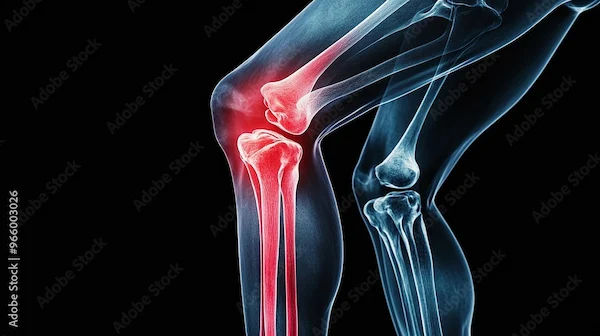Oesophagitis Overview and Treatment Options
Learn about Oesophagitis, including its causes, symptoms, and various treatment options. This comprehensive guide covers everything from lifestyle changes to medical interventions to help you find relief.


Dealing with discomfort or pain while swallowing can be distressing. If you’ve been experiencing heartburn, difficulty swallowing, or a burning sensation in your chest, you might be suffering from oesophagitis. This condition, though common, can significantly impact your quality of life if left untreated.
In this article, we’ll break down everything you need to know about oesophagitis—what it is, its symptoms, causes, and how you can manage it effectively.
What is Oesophagitis?
Oesophagitis is the inflammation or irritation of the oesophagus (the tube that carries food from your mouth to your stomach). When the lining of the oesophagus becomes inflamed, it can lead to pain, difficulty swallowing, and other uncomfortable symptoms.
Types of Oesophagitis
There are several types, including:
1. Reflux Oesophagitis – Caused by stomach acid flowing back into the oesophagus (GERD).
2. Eosinophilic Oesophagitis – An allergic reaction causing inflammation.
3. Infectious Oesophagitis – Caused by infections like candida (fungal) or herpes (viral).
4. DrugInduced Oesophagitis – Certain medications (like painkillers or antibiotics) can irritate the oesophagus if not taken with enough water.
Symptoms of Oesophagitis
The symptoms can vary depending on the cause but commonly include:
- Heartburn (burning sensation in the chest)
- Difficulty or painful swallowing (dysphagia)
- Food getting stuck in the throat
- Nausea or vomiting
- Chest pain (especially behind the breastbone)
- Chronic cough or sore throat
- Unintended weight loss (in severe cases)
If you experience these symptoms frequently, it’s important to consult a doctor for proper diagnosis and treatment.
Consult a Gastroenterologist personalized consultation
What Causes Oesophagitis?
Several factors can lead to oesophagitis:
1. Acid Reflux (GERD)
- When stomach acid frequently flows back into the oesophagus, it damages the lining over time.
2. Allergies (Eosinophilic Oesophagitis)
- Certain foods (like dairy, eggs, or wheat) can trigger an immune response, leading to inflammation.
3. Infections
- Fungal (Candida) – Common in people with weakened immune systems (e.g., diabetes, HIV).
- Viral (Herpes, CMV) – Seen in immunocompromised individuals.
4. Medications
- Pills like aspirin, ibuprofen, or certain antibiotics can irritate the oesophagus if not taken with enough water.
5. Other Causes
- Excessive alcohol consumption
- Smoking
- Radiation therapy (for cancer treatment)
How is Oesophagitis Diagnosed?
If you suspect you have oesophagitis, your doctor may recommend:
1. Endoscopy – A thin, flexible tube with a camera is inserted to examine the oesophagus.
2. Biopsy – A small tissue sample may be taken during endoscopy to check for infections or allergies.
3. Barium Swallow Test – You drink a liquid that coats the oesophagus, making it visible on Xrays.
4. pH Monitoring – Measures acid levels in the oesophagus over 24 hours.
Treatment Options for Oesophagitis
The treatment depends on the cause but generally includes:
1. Medications
- Antacids & Acid Blockers (PPIs, H2 Blockers) – Reduce stomach acid production.
- Steroids – For eosinophilic oesophagitis to reduce inflammation.
- Antifungal/Antiviral Drugs – If an infection is the cause.
2. Dietary & Lifestyle Changes
- Avoid Trigger Foods – Spicy, acidic, fatty, or fried foods can worsen symptoms.
- Eat Smaller Meals – Large meals increase acid reflux.
- Stay Upright After Eating – Avoid lying down for at least 23 hours after meals.
- Quit Smoking & Limit Alcohol – Both irritate the oesophagus.
- Lose Weight (if needed) – Excess weight increases pressure on the stomach, worsening reflux.
3. Surgery (in Severe Cases)
- Fundoplication – A procedure to tighten the lower oesophageal sphincter to prevent acid reflux.
When to See a Doctor?
If you experience:
- Persistent difficulty swallowing
- Severe chest pain
- Vomiting blood or black stools
- Unintended weight loss
Seek immediate medical attention, as these could indicate complications like bleeding or strictures (narrowing of the oesophagus).
Final Thoughts
Oesophagitis can be uncomfortable, but with the right treatment and lifestyle changes, most people recover well. If you suspect you have this condition, don’t ignore the symptoms—early treatment can prevent complications.
Need expert advice?
You can consult a gastroenterologist through Apollo 24|7 for a proper diagnosis and personalized treatment plan. Book an appointment today and take the first step towards better digestive health!
Stay informed, stay healthy!
Consult a Gastroenterologist
Consult a Gastroenterologist

Dr. Soham Doshi
Gastroenterology/gi Medicine Specialist
8 Years • MD medicine DNB Gastroenterology fellowship in Liver Transplant
Nashik
Apollo Hospitals Nashik, Nashik

Dr. Swapnil Mujawdiya
Gastroenterology/gi Medicine Specialist
7 Years • MBBS, MD (Medicine), DM, Gastroenterology, SGPGI (Lucknow).
Indore
Apollo Hospitals Vijay Nagar, Indore

Dr G Varun Teja
Gastroenterology/gi Medicine Specialist
6 Years • MBBS (Osmania Medical College) MD Internal Medicine (PGIMER, Chandigarh) DM Gastroenterology (AIIMS, New Delhi) Fellowship in Advanced Endoscopy (AIIMS, New Delhi)
Chinagadila
Apollo Hospitals Health City Unit, Chinagadila
(50+ Patients)

Dr. Sumanth Simha Vankineni
Gastroenterology/gi Medicine Specialist
4 Years • MD, DM (Medical Gastroenterology )
Chinagadila
Apollo Hospitals Health City Unit, Chinagadila
(25+ Patients)

Dr. Apurva Sudhirbhai Shah
Gastroenterology/gi Medicine Specialist
8 Years • MBBS, MD(Med.) DNB (Gastro)
Ahmedabad
Apollo Hospitals Gandhinagar, Ahmedabad
(75+ Patients)
Consult a Gastroenterologist personalized consultation

Dr. Soham Doshi
Gastroenterology/gi Medicine Specialist
8 Years • MD medicine DNB Gastroenterology fellowship in Liver Transplant
Nashik
Apollo Hospitals Nashik, Nashik

Dr. Swapnil Mujawdiya
Gastroenterology/gi Medicine Specialist
7 Years • MBBS, MD (Medicine), DM, Gastroenterology, SGPGI (Lucknow).
Indore
Apollo Hospitals Vijay Nagar, Indore

Dr G Varun Teja
Gastroenterology/gi Medicine Specialist
6 Years • MBBS (Osmania Medical College) MD Internal Medicine (PGIMER, Chandigarh) DM Gastroenterology (AIIMS, New Delhi) Fellowship in Advanced Endoscopy (AIIMS, New Delhi)
Chinagadila
Apollo Hospitals Health City Unit, Chinagadila
(50+ Patients)

Dr. Sumanth Simha Vankineni
Gastroenterology/gi Medicine Specialist
4 Years • MD, DM (Medical Gastroenterology )
Chinagadila
Apollo Hospitals Health City Unit, Chinagadila
(25+ Patients)

Dr. Apurva Sudhirbhai Shah
Gastroenterology/gi Medicine Specialist
8 Years • MBBS, MD(Med.) DNB (Gastro)
Ahmedabad
Apollo Hospitals Gandhinagar, Ahmedabad
(75+ Patients)



